Equipping Members of the Next Generation of Christians to Defend Their Faith and to Embrace a Biblical Worldview, Part 3
The point of having an open mind, like having an open mouth, is to close it on something solid.
—G. K. Chesterton—
Key point: Drawn to belief in Christianity by the evidence, hardened skeptics have given their lives to Christ when they saw that it was and is objectively true.
Welcome to part 3 of our series on the importance of teaching apologetics and the biblical worldview to all believers, but especially to the next generation of Christians!
You can find links to all the articles in this series here.
- We noted in part 1 the trend of young adults who’ve been brought up in church to walk away from Christianity once they have moved into their adult years, and
- we went on to emphasize in part 2 that the church, however unintentionally, will at times downplay the importance of examining the evidence for Christianity and becoming skillful in presenting it. We indicated that while a personal testimony of faith in Christ has value, it also has limitations—limitations beyond which apologetics is more likely to reach.
It is time for the church to realize both the drawing power and the staying power of apologetics—a well-reasoned defense of the Christian faith. The same evidence that has brought hardened skeptics to faith in Christ also has the power to give young believers the confidence they need when their faith is challenged. When they are convinced that Christianity is objectively true not merely because of their own personal experiences but especially because of the evidence, young adults will be much less likely to abandon Christianity for other truth claims.
The same evidence that has brought hardened skeptics to faith in Christ also has the power to give young believers the confidence they need when their faith is challenged.
This means, of course, that pastors and other church leaders will have to see the Christian faith and teach it as something beyond a personal, subjective experience. While Christianity is that, it also is objectively true regardless of what people believe or disbelieve about it. How do we know it is true? Evidence abounds! We must be willing to examine it, listen to it, and respond accordingly.
Christianity is objectively true regardless of what people believe or disbelieve about it.
Here we will highlight the drawing power of apologetics, and soon thereafter, about it’s staying power.
Drawing Power
Consider the following individuals. They either were convinced Christianity was false and set out to prove it to be false, or they were genuine inquirers who, with open minds, examined the evidence and followed it where it took them.
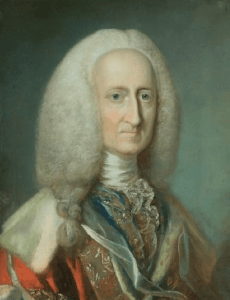
Lord Littleton and Gilbert West (also go here)
Littleton (1709-1773); West (1703-1756)
Lord Littleton and Gilbert West were lawyers who agreed that Christianity was false and needed to be soundly refuted. They decided that each would research one of two essential elements of the Christian faith. Without both of these components, they believed, Christianity would totally crumble. Littleton investigated the conversion of the apostle Paul on the road to Damascus, and West studied what history said about Jesus’ resurrection from the dead. After ample time had passed, the men came back together to compare notes. Each one had become a Christian! Independently, each became convinced that Christianity was true based on evidence he could not refute! We can be thankful for Littleton’s and West’s intellectual honesty. From this page, you can download papers that showcase their findings — findings that compelled these men (who apparently also were cousins) to move from skepticism to faith.
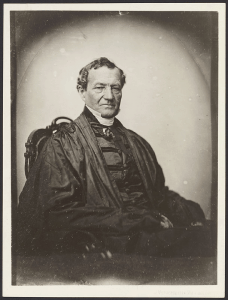
Simon Greenleaf (also go here)
(1783-1853)
Simon Greanleaf was not just any legal expert, but a legal scholar who “helped to put the Harvard Law School on the map” and who drafted rules for legal evidence still used in the US judicial system today. Greenleaf decided to apply his legal expertise in examining evidence for Jesus’ resurrection. He concluded that the resurrection best explained the events that followed in the days and weeks after Jesus’ death. Greenleaf came to believe
the case for Jesus’ resurrection was so compelling that he had no doubt it would hold up in a court of law. In his book, The Testimony of the Evangelists [available online], Greenleaf documents the evidence supporting his conclusion. He challenges those who seek the truth about the resurrection to fairly examine the evidence.
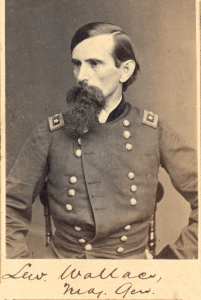
Lew Wallace (also go here)
(1827-1905)
Lew Wallace was a lawyer who served in the Indiana State Senate. He also served as a Major General in the Union Army during the US Civil War and as governor of New Mexico Territory. Wallace also was a novelist. He is best known for his second novel, Ben Hur: A Tale of the Christ. While on a train, Wallace heard Robert Ingersoll, a well-known agnostic, expound with acid sarcasm about his destain for those who believed in the God of the Bible. Wallace, who previously had cared little about Christianity, pondered all he’d heard and determined to study the Christian faith and write about what he learned. He expressed his findings in story form. Of Ingersoll’s tirade Wallace later said,
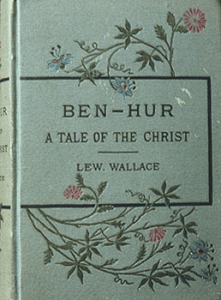
[H]ere was I now moved as never before, and by what? The most outright denials of all human knowledge of God, Christ, Heaven… Was the Colonel right? What had I on which to answer yes or no? He had made me ashamed of my ignorance: and then—here is the unexpected of the affair—as I walked on in the cool darkness, I was aroused for the first time in my life to the importance of religion… I thought of the manuscript in my desk. Its closing scene was the child Christ in the cave by Bethlehem: why not go on with the story down to the crucifixion? That would make a book, and compel me to study everything of pertinency; after which, possibly, I would be possessed of opinions of real value. It only remains to say that I did as resolved, with results—first, the book Ben Hur, and second, a conviction amounting to absolute belief in God and the Divinity of Christ.
Sir William Mitchell Ramsey
(1851-1939)
Ramsey was an archaeologist and an atheist who set out to prove the Bible wrong. Focusing primarily on Paul’s journeys, Ramsey studied archaeological evidence on site for fifteen years. In the end, he concluded that the Bible was accurate and that Christianity was indeed true. He said of Luke in particular, “Luke is a historian of the first rank; not merely are his statements of fact trustworthy…this author should be placed along with the very greatest historians.” Ramsey’s conversion to Christianity frustrated and angered skeptics, especially those who knew of his quest and had expected him to reach a different conclusion. Perhaps Ramsey himself was surprised—but he simply had examined the evidence and arrived at the conclusion to which it had decisively pointed.
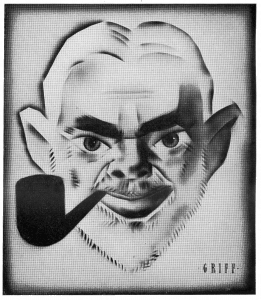
Cyril E. M. Joad
(1891-1953)
Dr. Joad was a philosopher who taught at the University of London. He had many friends and associates who were skeptics, and he, along with them, did all they could do to weaken the faith of students who professed to be Christians. However, as he reflected on the ills of the world and humanity’s involvement in them, Dr. Joad began to rethink his beliefs about God and Christianity. In the end, he became a believer. People really are sinners, he concluded, and the only remedy for their sin resided in the Person of Jesus Christ. Jesus truly was unique. No one—absolutely no one—was like Him!
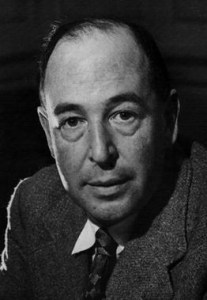
Before becoming one of Christianity’s most revered and celebrated apologists, British intellectual and university professor Clive Staples Lewis had renounced the Christianity in which he’d been raised and had become a hardened atheist. Writes Robert B. Stewart,
Lewis’s long journey away from, and back to, faith began with his mother’s death from cancer when he was a boy. Disillusioned that God had not healed his mother, Lewis set out on a path toward full-bodied rationalism and atheism.
The road back to faith was cluttered with obstacles Lewis once thought impossible to overcome. His conversion to a robust Christianity required years of intellectual struggle and came only after being convinced that faith was reasonable.
Albert Henry Ross
(1881-1950)
Albert Henry Ross is better known as Frank Morison, author of the classic book on the resurrection of Christ, Who Moved the Stone? Ross was yet another skeptic who set out to disprove Christianity—the resurrection of Jesus in particular. His research led him to substantive evidence that refuted his original assumptions, and he became a believer. Ross presents his findings in Who Moved the Stone?, which was originally published in 1930. The book now is available online.
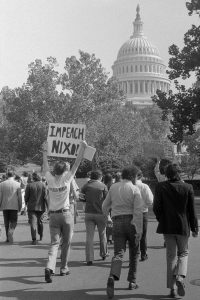
Charles “Chuck” Colson was a lawyer and Special Counsel to President Richard Nixon, 1969-1973. He was known as Nixon’s “hatchet man.” It was said he’d declared he’d run roughshod over his own grandmother, if necessary, to elect Nixon for a second term. Colson was ruthless. His cold instincts and manipulative skills were his trademarks in the Nixon White House—and he got things done!
Then came the Watergate scandal. Damaging news reports emerged as a trickle at first, then a stream, and then a mighty river that engulfed power brokers all over Washington. Colson himself also was vulnerable—and he knew it. Against the backdrop of Watergate, on August 12, 1973, he paid a visit to his friend, Tom Phillips, the president of the Raytheon Company. He’d known Tom for years but recently had noticed a change in him that was significant and remarkable. Tom had told Chuck he’d become a Christian, and Colson wanted to know more. How had becoming a believer in Christ brought about such noticeable changes?
Do you need a writer or an editor? B. Nathaniel Sullivan’s contact information is available here.
The two talked at length. “All the material things in life are meaningless,” Tom said, “if a man hasn’t discovered what’s underneath them.”1 Tom spoke of his rise to success at an early age and the emptiness he felt after arriving at the top. There was, he said, a huge void in his life. That emptiness prompted this corporate giant to search for answers that would satisfy. After looking everywhere else, he began to read the Bible. Not long thereafter, on a business trip to New York, he saw that a Billy Graham Crusade was underway in Madison Square Garden. He attended the service that night, and Rev. Graham’s message clarified for him that he lacked what he needed most—a personal relationship with Christ—and that he could have it by turning his life over to Christ and receiving him as his Savior and Lord. Right then and there, on that very evening, he asked Christ to come into his life, forgive his sins, and make him a new man.
Chuck was baffled. Could it really be that simple? How could merely turning one’s life over to Christ bring about such profound changes?2 But there was even more Chuck had to reflect on when he left Tom’s house that night. Colson shared that his friend
read to me from Mere Christianity by C. S. Lewis, particularly a chapter about the great sin that is pride. A proud man is always walking through life looking down on other people and other things, said Lewis. As a result, he cannot see something above himself immeasurably superior—God.…
I listened attentively, but didn’t let on my own need. When he offered to pray, I thanked him but said, no, I’d see him sometime after I read C. S. Lewis’s book. But when I got in the car that night, I couldn’t drive it out of the driveway. Ex-Marine captain, White House tough guy, I was crying too hard, calling out to God. I didn’t know what to say; I just knew I needed Jesus, and He came into my life.
Chuck Colson went on to write numerous life-changing books, including his own story, Born Again. He also founded Prison Fellowship, a ministry to prisoners and their families; BreakPoint, a daily radio commentary on issues from a Christian perspective; and the Colson Center for Christian Worldview. These ministries continue to have great impact in furthering the cause of Christ.
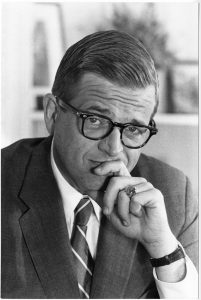
Chuck’s story, and Cyril E. M. Joad’s story as well, illustrate that apologetics isn’t just about evidence for why Bible events are true, but also about evidence for why the human condition is as the Bible says it is, and why the biblical remedy for humanity’s problems is what the Bible declares it to be. Apologetics, therefore, isn’t narrow, but broad. It has worldview implications. Listen to these statements from Chuck Colson that are a part of the intro to the weekly radio broadcast Breakpoint This Week. The second of these is a quotation from Dutch theologian and statesman Abraham Kuyper, one we highlighted last week.
André Kole
(b. 1936)
André Kole is an illusionist who has worked with other great illusionists, including David Copperfield. Mr. Kole thoroughly studied biblical miracles to expose them as myths, but in the end became convinced that they were indeed what the Bible says they are—miracles of God. As a result, Kole became a believer. He has traveled extensively, giving performances at which he presents the gospel of Christ.
Josh McDowell (also go here)
(b. 1939)
Having had a rough family life and having been sexually abused for seven years, Josh McDowell was an agnostic when he attended community college. Several Christians at school challenged Josh to examine the claims of Christianity and to follow the evidence wherever it led. An agnostic at this point in his life, Josh accepted the challenge, but he intended initially to study the evidence so he could decisively refute the Christian faith. Instead, he confronted facts and evidence he could not deny, and he became a Christian. Since 1964, Josh has had a speaking ministry closely associated with Cru, formerly known as Campus Crusade for Christ. A great many of his books on apologetics, relationships, and the Christian faith have become bestsellers. More than a Carpenter, a book in which Josh summarizes the evidence for Christianity, has sold more than 15 million copies in 85 languages.

Dr. Hugh Ross
(b. 1945)
Dr. Ross is an astronomer whose early studies of the stars, the universe, and the origin of the universe led him to investigate various religions to find who was behind all he had observed as a scientist. He states,
I began an investigation of the world’s so-called holy books. I reasoned that if men invent a religion, its teachings would reflect human perspectives and, of course, human error. But if the writing were free of such limitations and errors, it must have come from a supernatural source.
My non-religious upbringing freed me from emotional attachment to any particular book or set of beliefs. So I started with the books revered by my neighbors, Eastern religious texts, and worked my way westward.
At last Hugh Ross began to study the Bible, and he “struck gold!”
From page one, this book proved an exception. Not only did it provide hundreds of statements that could be tested for accuracy, it also anticipated—thousands of years in advance—many facts of socio-political history and of nature that research would one day confirm.…
Through nearly two years of study this book’s predictive power persuaded me that it must have been inspired by One who knows and guides the past, present, and future. I had essentially proven to myself that the Bible is more reliable than the laws of physics I focused on in my university courses. The only reasonable conclusion I could see was that the Bible must be the inspired Word of God.
For a time, however, Ross struggled. A commitment to Christ must be one not just of the mind, but of the will—of one’s entire being. Eventually, he came to the point where he surrendered his life to Christ. He was a college student at the time. His ministry, Reasons to Believe, integrates science and faith. Significantly, Ross declares,
Reasons to Believe emerged from my passion to research, develop, and proclaim the most powerful new reasons to believe in Christ as Creator, Lord, and Savior and to use those new reasons to reach people for Christ. I also am eager to equip Christians to engage, rather than withdraw from or attack, educated non-Christians.
Dr. Gary Habermas
(b. 1950)
Dr. Habermas is a professor at Liberty University and authority on the resurrection of Christ. He had questions and doubts about God and spiritual things for many years. He longed for answers and sought them through intense study and investigation. He researched the various religions of the world, but nothing gave him peace or substantive answers as did his extensive study of Jesus, His life and ministry, and His resurrection from the dead. Dr. Habermas considers the resurrection of Christ to be the anchor that tethers him to the Christian faith and brings stability to his life and work.
Lee Strobel (also go here)
(b. 1952)

Lee Strobel was an investigative reporter for the Chicago Tribune when his wife became a Christian. An atheist who was quite comfortable in his belief that God doesn’t exist, Lee became angry. Yet, after seeing remarkable changes in his wife’s outlook on life and in her inner spirit, Lee decided to investigate the claims of Christianity for himself. His study took time, but in the end he concluded that Christianity was indeed true and gave his life to Christ. He’s written numerous bestsellers, including several on apologetics. His journey to faith in Christ has even been turned into a full-length feature film.
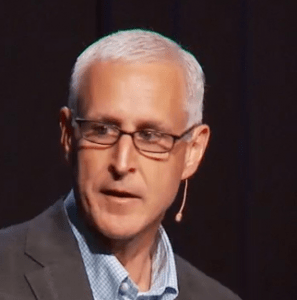
James Warner Wallace — “Jim” — is a cold-case homicide detective who for many years was an atheist. After becoming intrigued by the biblical accounts of Jesus’ life, ministry, death, and resurrection—the Gospels—Wallace examined them thoroughly.
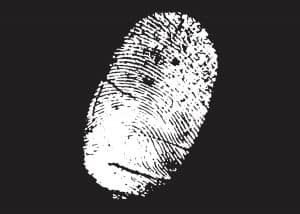
He took the principles of cold-case investigation and applied them to his study, and in 1996, at the age of 35, he concluded that the Gospels were eyewitness accounts of real people and real events. Following the evidence he had uncovered in his investigation of the biblical texts, Wallace became a Christian. He now has his own ministry and website, www.coldcasechristianity.com, and he serves as a Senior Fellow at the Colson Center for Christian Worldview. Also, he teaches at Biola University in La Mirada, California.
Dr. Mike Licona
(b. 1961)
Dr. Licona serves as Associate Professor of Theology at Houston Baptist University. Like many, Dr. Licona struggled with doubts in his early years, but he resolved to investigate the truth claims that sought his allegiance, uncover evidence, and go wherever the evidence took him. Dr. Licona states, “After years of research, the conclusion was inescapable that Jesus had risen from the dead, and the Christian gospel turns out being true.”
Lessons from the Lives of Those Who Searched for Truth
The lives of these individuals speak to us today about the power of the evidence for Christianity.
First, we must acknowledge that these men were and are brilliant and unlikely to be hoodwinked. They used their ability to reason. Reason is a friend, not an enemy, of the Christian faith. As Greg Koukl has said,
The opposite of faith is not reason; the opposite of faith is unbelief, or lack of trust. The opposite of reason is not faith; the opposite of reason is irrationality. So it certainly is possible to have reasonable faith, and it is also possible to have unreasonable unbelief.
[I]t certainly is possible to have reasonable faith, and it is also possible to have unreasonable unbelief.
—Greg Koukl—
Second, note that these individuals (and we haven’t by a long shot compiled an exhaustive list) come from all walks of life and represent a wide variety of interests and professions. Not all of them investigated the same aspect of the Bible or the Christian faith, yet all of them reached the same conclusion.
Third, some were hardened in their anti-Christian views when they started their journeys of discovery. Thus, the evidence for Christianity has won over even some who at first were solidly convinced that Christianity was untrue.
Fourth, while not all of these investigators started with open minds, in the end they demonstrated a willingness to reach the conclusion to which the evidence pointed—and it pointed to Christianity as being true. No amount of evidence, no matter how strong, can force a man or woman to become a Christian against his or her will.
Finally, if the evidence for Christianity can win over dyed-in-the-wool skeptics, think of how much power it can have to anchor an individual to the faith he or she already has professed! Properly studied and applied, apologetics doesn’t just win the lost—it also gives confidence and boldness to the saved. Once a person is convinced that Christianity is true regardless of whether or not he or she, or anyone else, accepts or rejects it, the individual is far less likely to abandon it for other truth claims.
Properly studied and applied, apologetics doesn’t just win the lost—it also gives confidence and boldness to the saved.
Next week we will explore these and many other benefits of studying apologetics. Don’t miss our discussion!
Copyright © 2018 by B. Nathaniel Sullivan. All rights reserved.
Notes:
1John Perry, Charles Colson: A Story of Power, Corruption, and Redemption, (Nashville: Boradman & Holman Publishers, 2003), 142.
2John Perry, Charles Colson: A Story of Power, Corruption, and Redemption, (Nashville: Boradman & Holman Publishers, 2003), 141-143.
top image credit: www.lightstock.com
Unless otherwise indicated, Scripture has been taken from the New King James Version®. Copyright © 1982 by Thomas Nelson, Inc. Used by permission. All rights reserved.

Be First to Comment